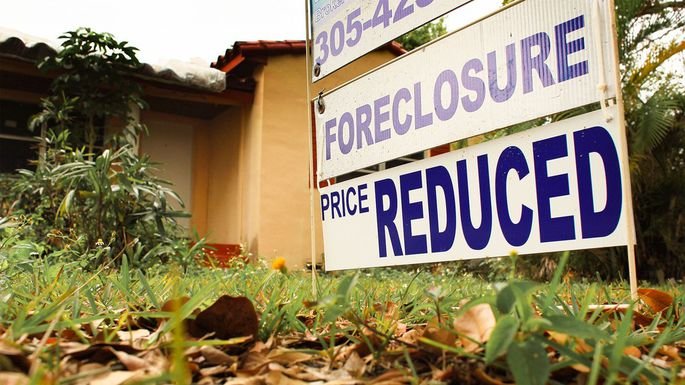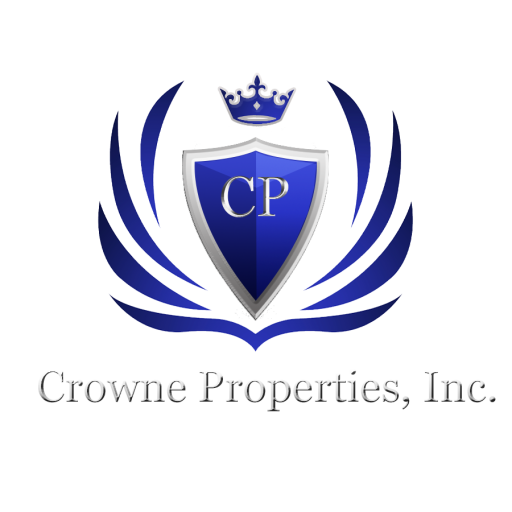
The number of homes in foreclosure has been steadily increasing at an alarmingly rapid rate over the past few years.
Homes go into foreclosure for a variety of reasons.
Homeowners find themselves unable to make mortgage payments due to a sudden job loss or illness. Perhaps they were offered a subprime mortgage that they thought allowed them to buy a home that would ordinarily be out of their budget. In some cases, the home’s value simply declined so dramatically that homeowners end up in foreclosure because the house is worth less than the mortgage (also called “negative equity.”)
If you’re currently in any of these situations, we know that you’ve likely asked yourself, “Can I sell my house in foreclosure?” We know that you don’t want to face a major hit to your credit score, potential financial ruin, or even the possibility of not having a place to live.
Yes, facing down a potential foreclosure is scary. But you do have options. This post is here to help you learn what those options are, and guide you through them.
First, Call Your Lender
The first thing that you need to do when you’re trying to avoid foreclosure is, for many homeowners, also one of the most difficult.
As embarrassed as you might feel, one of the best things that you can do is to reach out to your lender and let them know that you’re having trouble coming up with the money needed to keep making your mortgage payments on time.
While of course, the mortgage lender is out to protect their asset, they also understand that sometimes, unavoidable or unexpected circumstances like death, divorce, job loss, or even a sudden increase in an adjustable interest rate can cause financial struggles for homeowners.
In most cases, your lender will speak with you about a variety of different options.
Usually, the first option your lender will give you is forbearance. This means that you’ll have extra time to make this payment, and the lender will not take any legal action against you while you work towards finding a payment solution.
They may also offer you a note/loan modification, where the lender changes the loan condition in some way, such as extending the life of the loan or even freezing your current interest rate.
You may also come up with a repayment plan, where your lender tacks on a more manageable dollar amount to your current monthly payments in order to make up for the month of missed payments. You’ll pay this “base+makeup” amount until the missed loan payment is covered.
If you have government loans, you may be able to use them to pay for missed mortgage payments, though this means meeting strict criteria. You may also be able to get debt forgiveness, where your lender actually waives the missed payment. (Don’t get your hopes up though, as this almost never happens.)
Understanding Pre-Foreclosure
Now, let’s make sure that you understand the basics of the actual foreclosure process.
The first step in any foreclosure proceedings is called “pre-foreclosure.”
This is where you’ll speak to your lender and discuss the options above, and it’s the absolute best time to take action because your credit score hasn’t yet been impacted by your inability to make a payment.
This is also the best time to consider your pre-foreclosure “for sale by owner” option. You may decide to put your home up for sale in the market on your own.
However, be aware that this is a time-consuming and often difficult process. Selling on your own means accepting the very real risk that you may not be able to find a buyer before your home is placed under foreclosure.
The same goes for hiring a real estate agent.
When hiring a real estate agent, you’ll also be responsible for commission and fees, so hiring an agent simply may not be a realistic choice for you financially. However, if you have between 4-6 months, you may be able to make an agent or a for sale by owner situation work.
For most people facing foreclosure, the best option here is to find a buyer who will make you a cash offer on your home, and who is willing to buy it in any condition.
The Foreclosure Process
You’ll know that the foreclosure process has begun on your home when your lender mails you a Notice of Default. This notice goes into the public records, and states that your home could be seized, your home’s address, and that you’ve missed your mortgage payments.
Depending on the timing of your notice, you’ll have anywhere from 20-90 days before the state of Hawaii can seize, sell, or auction off your home. The state of Hawaii allows lenders to use both judicial and non-judicial foreclosure options. (This post does a great job of breaking down what those terms mean in detail.)
The good news is that, during this time, you’ll be able to find a cash buyer for your home in foreclosure.
The hard part, especially emotionally, is that notices about your foreclosure will run in the local newspaper. This is so that interested buyers can learn about opportunities to buy foreclosed houses. But it’s often extremely humiliating for homeowners.
This alone is why so many people want to find a cash buyer for their homes.
Yes, you can file for Chapter 13 bankruptcy in order to hold off the foreclosure. You may also sign a deed-in-lieu of foreclosure, where you as the homeowner will sign the house’s deed back over to your mortgage lender.
But you should look for a cash buyer instead. Read on to learn more about why.
Can I Sell My House in Foreclosure to a Cash Buyer?
If you’re still asking yourself, “Can I sell my house in foreclosure for cash?” we want to make sure you’re clear on how the process works.
A ‘cash buyer’ company will buy your foreclosed home in any condition — meaning that you don’t need to worry about making costly repairs and updates to your home.
They will also cover your closing costs and will not charge you any fees or commissions throughout the process — which is an enormous help to homeowners who are financially struggling.
These cash buyers will also file your paperwork with a local bank — meaning that the process doesn’t end up becoming a serious headache to you when you’re already under lots of stress.
Perhaps the biggest reason to work with a cash buyer is that they can buy your foreclosed home incredibly quickly, and they’ve done this many times before. Often, they’ll be able to buy your property in just a couple of weeks. Of course, if you need more time, these cash buyer companies will also be able to delay the sale while you get your affairs in order.
What to Look for in a Cash Buyer
If you decide to work with a cash buyer, you need to make sure you don’t end up falling for a scam, and that you work only with reputable companies.
Ensure that the cash buyer doesn’t intend to offer you one amount on your home, and then lowball you at the last second when you’re already desperate. You deserve a fair price for your home — and to be respected throughout the process.
Even if an agent can’t sell your home, a qualified cash buyer will be able to help you.
They should also be able to answer any and all questions you have during the process and make you feel comfortable every step of the way.
Work with Us to Sell Your Home in Foreclosure
Now is the time to stop asking yourself questions like, “Can I sell my home in foreclosure?” and start taking action to protect your credit score, your financial situation, and your family as a whole.
We buy houses in Oahu, Hawaii in any condition, and we’ll work with you whether you’re facing foreclosure, have inherited property you don’t want, or simply wish to sell your home as fast as possible.
We’re proud members of Hawaii’s Chamber of Commerce, have a five-star rating on Google, and have an A rating from the Better Business Bureau. You deserve to work with a cash buyer who is experienced, trusted, and credible — and that’s exactly what you’ll get when you work with us.
Ready to get started?
Click here to complete the simple form on our website to request your cash offer from us today.
We look forward to helping you sell your home and get your life back on track.

